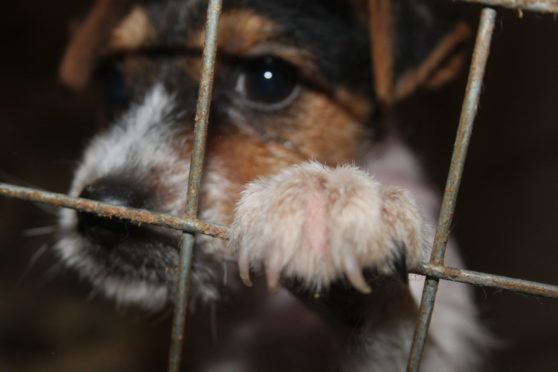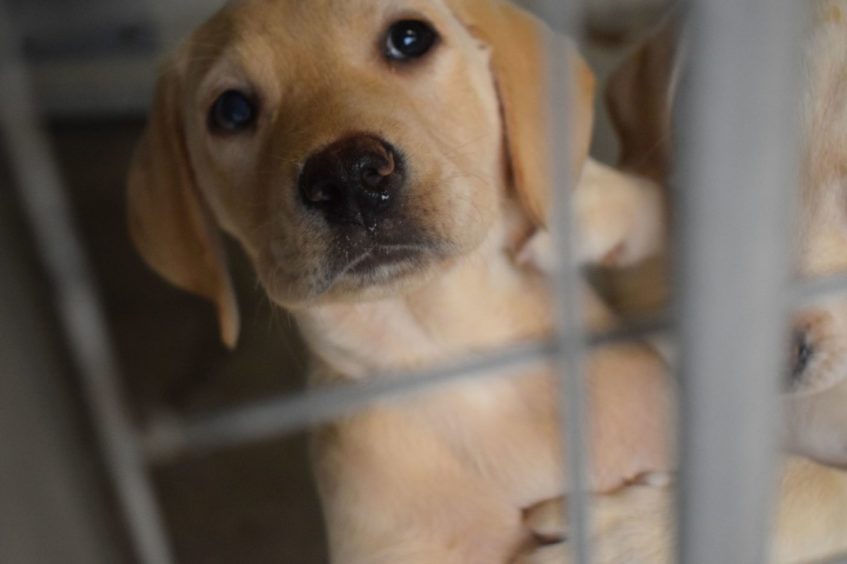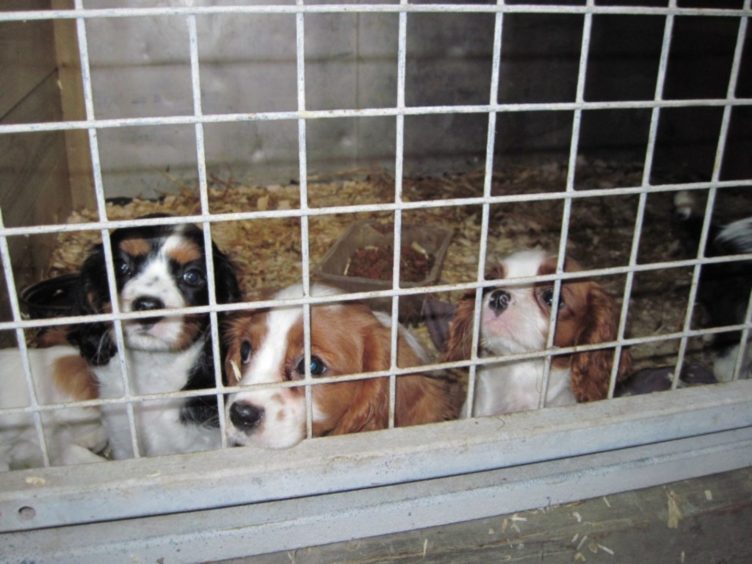Potential dog owners have been advised to do their homework as puppy farmers are finding new ways to scam people.
There has been a surge in demand for dogs during lockdown, pushing the prices up – making it all the more tempting for puppy farmers to breed.
The Scottish SPCA has recorded a surge in reports across the country, with the special investigations unit currently dealing with more than 80 reports of suspicious deals.
Now a Daily Record investigation has revealed many puppy farmers are working out of rented properties to strengthen their ruse, and make families believe the pups have been well looked after in family settings.
This can include flats and even shop fronts.
In reality, the young dogs have been taken from their mothers too early, and are in poor health.
Do your research, and insist on seeing mum
Advice Direct Scotland has today issued a fresh warning to those contemplating buying a puppy and urged them to carry out extensive research before agreeing to a deal.
Puppies without paperwork and certificates should not be purchased, and buyers should insist on seeing the puppy at home with its mother.
Marjorie Gibson, head of operations with Advice Direct Scotland, said: “Lockdown has resulted in more and more people considering getting a puppy for their household.
“That trend has led to an increase in illegal breeders and puppy farms, who sell puppies which are not ready to leave their mother and haven’t had the correct treatment or vaccinations.
“That can often result in the dog becoming extremely unwell and even dying.
“Anyone who doubts the credentials of a puppy seller should trust their instincts and pull out of the sale.
“Suspicious activity should also be reported to the police or Scottish SPCA.”
‘Master manipulators’ able to keep selling as public keep buying
More than 750 calls were made to the Scottish SPCA last year regarding illegal breeders, leading to the launch of more 350 investigations by their special investigations unit.
The charity has urged people to help tackle the “abhorrent industry” by simply walking away.
Scottish SPCA chief superintendent Mike Flynn said: “We are being overwhelmed with reports of sick and dying pups because the public continues to fuel the low-welfare puppy trade.
“These dealers are master manipulators and will use any means necessary to sell you that pup. They are using the pandemic as an excuse to drop the pup to you.
“They are also using rented accommodation to sell pups under the pretence they live there. Once the transactions are over, they up and leave with little chance of being traced.
“We need the public to help us tackle this abhorrent industry. As long as public demand exists then pups will still become sick and die because these bad breeders put financial gain over animal welfare.”
Anyone with concerns can call the charity’s helpline on 03000 999 999.
To find out more on how to spot a bad breeder, visit www.saynotopuppydealers.co.uk


